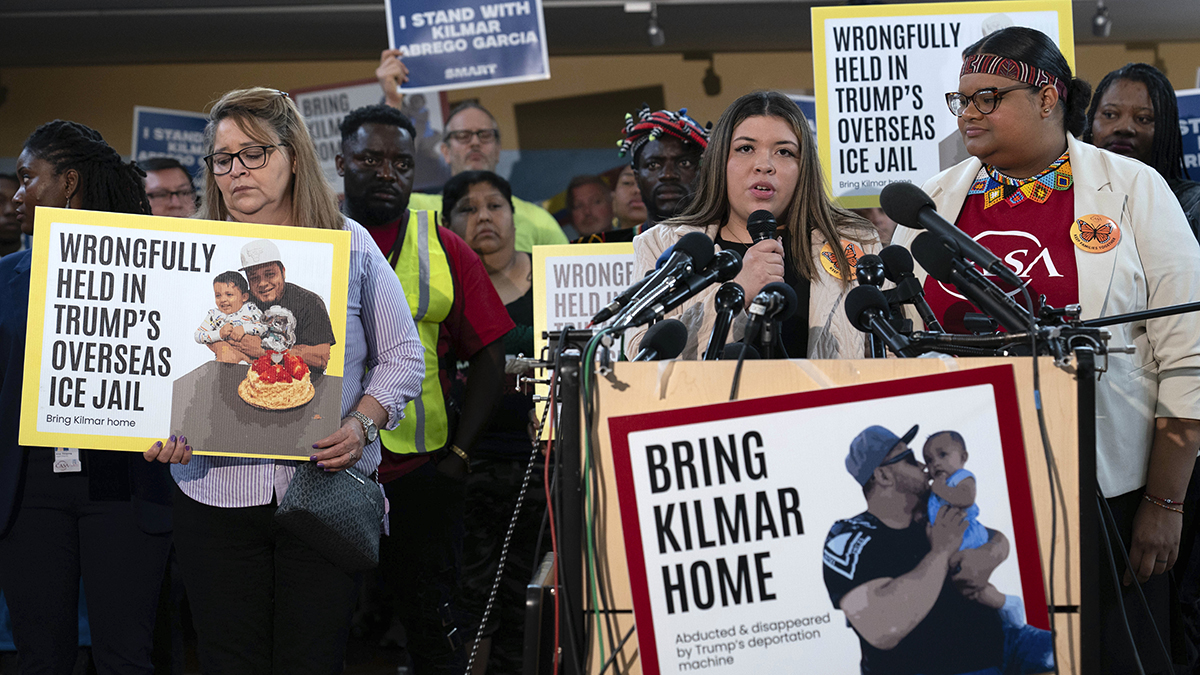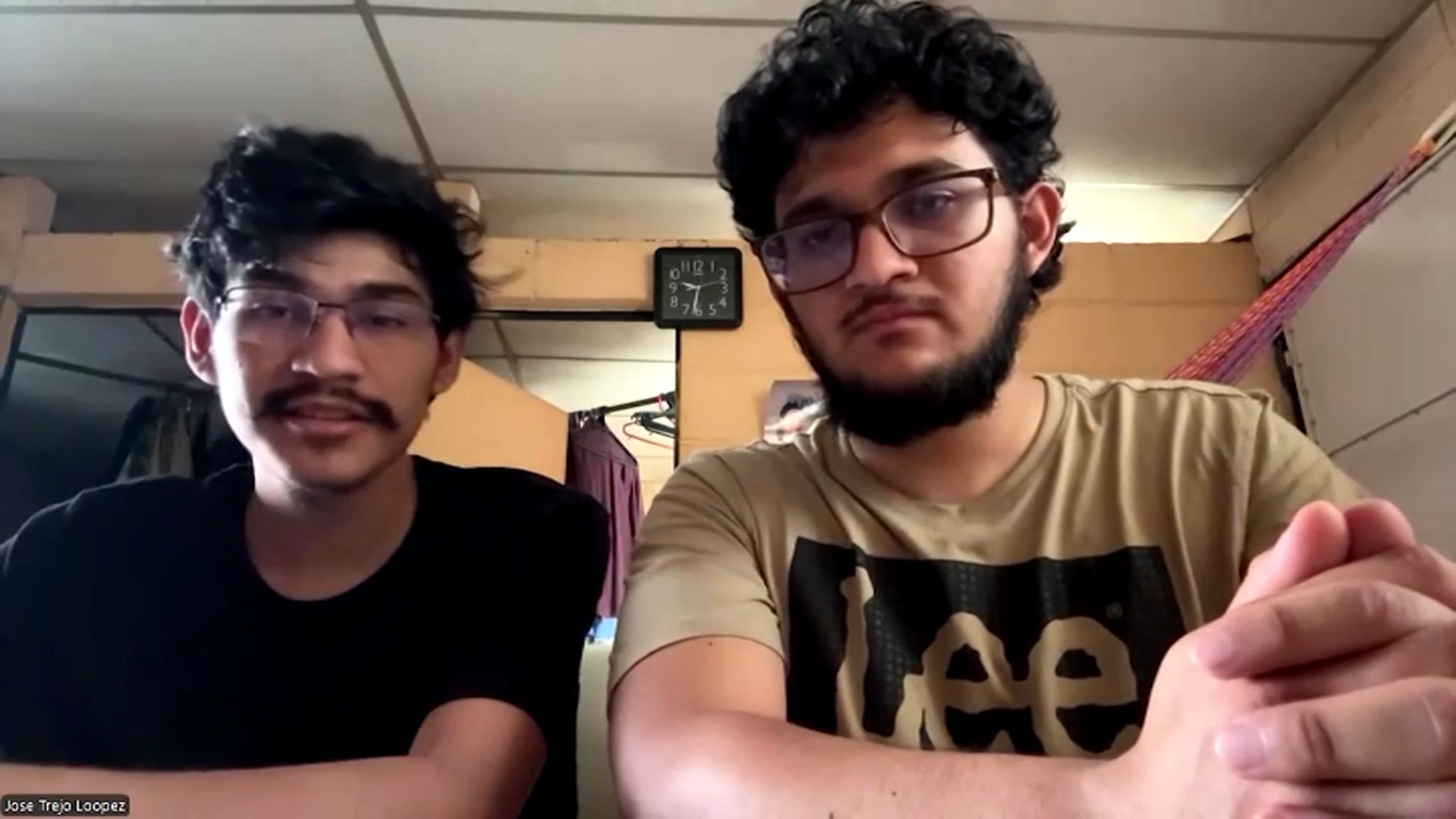Trump's Abrego Garcia Claim: Fact or Fiction?
Trump's Bold Claim: Could He Really Bring Kilmar Abrego Garcia Back?
Introduction
It's never a dull moment in the world of politics, especially when Donald Trump is involved. In a recent interview, the former president asserted he "could" have Kilmar Abrego Garcia, an individual deported during his administration, returned to the United States with a simple phone call. But here's the kicker: his own administration has previously argued in court that such a feat is impossible. Talk about a head-scratcher! So, let’s dive into this intriguing situation and dissect what’s really going on. Could Trump truly wield such influence, or is this another case of political grandstanding? Grab your popcorn, folks, because this is going to be a wild ride.
The Interview That Sparked the Controversy
During an interview with ABC News, Trump made the seemingly off-the-cuff remark about Abrego Garcia. When pressed about whether he could just call the President of El Salvador to request Abrego Garcia's return, Trump responded that he "could." However, he quickly added a caveat: he would only do so if Abrego Garcia was the "gentleman" he wasn't. Trump and his supporters have alleged that Abrego Garcia is a member of the notorious MS-13 gang, a claim Abrego Garcia’s legal team vehemently denies.
"Lawyers Don't Want To Do This": A Blame Game?
Trump didn't stop at just claiming he *could* bring Abrego Garcia back. He shifted the blame, stating, "I'm not the one making this decision. We have lawyers that don't want to do this." This raises a lot of questions, doesn't it? Is this a genuine constraint imposed by legal counsel, or is it a convenient excuse to deflect responsibility? It's like saying you *could* bake a cake, but your oven is mysteriously out of order.
The MS-13 Allegations: A Key Justification
The core of Trump’s justification for deporting Abrego Garcia, and seemingly for not wanting to bring him back, hinges on the allegation that Abrego Garcia is a member of MS-13. This is a serious accusation, and one that adds a significant layer of complexity to the situation.
Why the MS-13 Link Matters
Associating someone with MS-13 carries immense weight, particularly in the context of immigration and deportation. It's a label that can effectively demonize an individual and sway public opinion. If Trump can successfully portray Abrego Garcia as a dangerous gang member, his decision not to intervene becomes more palatable, even justifiable, in the eyes of his supporters.
The Legal Battle: Contradictory Claims
Here’s where things get really interesting. While Trump claims he *could* bring Abrego Garcia back, his administration has previously argued in court that the government lacks the authority to compel another country to return a deported individual. This discrepancy raises a critical question: is Trump’s recent statement simply hyperbole, or is there more to the story?
What the Courts Have Said
The legal arguments presented by Trump’s administration highlight the limitations of U.S. jurisdiction and the complexities of international relations. Essentially, the government argued that they couldn't force El Salvador to take Abrego Garcia back, as that would infringe on El Salvador’s sovereignty.
Political Theater or Genuine Influence?
So, is this all just political theater? Is Trump playing to his base, knowing that his supporters will readily accept his claims at face value? Or does he genuinely believe he possesses the influence to sway foreign governments in such a manner? It's difficult to say with certainty, but a healthy dose of skepticism is warranted.
Analyzing Trump's History of Claims
It’s crucial to consider Trump’s track record of making bold, often unsubstantiated, claims. Throughout his presidency, he frequently exaggerated his achievements and downplayed his failures. This pattern suggests that his statement about Abrego Garcia should be viewed with a critical eye.
The Human Cost: Abrego Garcia's Perspective
Amidst all the political maneuvering and legal wrangling, it’s easy to lose sight of the human element. Abrego Garcia's life has been significantly impacted by these events. He was deported, accused of gang affiliation, and now finds himself at the center of a political controversy. What must that be like?
The Impact of Deportation
Deportation can have devastating consequences, tearing families apart and disrupting lives. For Abrego Garcia, being deported to El Salvador, a country he may not even know well, presents immense challenges. Imagine being forced to start over in a completely foreign environment, with the added stigma of being labeled a gang member.
El Salvador's Role: A Sovereign Nation
It’s important to remember that El Salvador is a sovereign nation with its own laws and policies. Even if Trump were to call the President of El Salvador, there’s no guarantee that his request would be granted. El Salvador may have its own reasons for wanting or not wanting Abrego Garcia to return.
Geopolitical Considerations
The relationship between the United States and El Salvador is complex and multifaceted. Any decision regarding Abrego Garcia’s return would likely be influenced by broader geopolitical considerations, such as trade agreements, security concerns, and diplomatic relations.
The Role of Media Coverage
The media plays a crucial role in shaping public perception of this issue. How news outlets frame the story, the language they use, and the angles they choose to emphasize can all significantly influence how people understand the situation.
Objectivity vs. Bias
It’s essential to consume news from a variety of sources and to be aware of potential biases. Some news outlets may be more inclined to support Trump’s claims, while others may be more critical. The key is to evaluate the information critically and draw your own conclusions.
Beyond Abrego Garcia: A Broader Issue of Deportation
The case of Kilmar Abrego Garcia highlights a broader issue of deportation and immigration policies. It raises questions about due process, the rights of immigrants, and the power of the government to remove individuals from the country.
The Debate Over Immigration Policies
Immigration is a highly contentious issue in the United States, with passionate arguments on both sides. Some argue for stricter enforcement of immigration laws, while others advocate for more compassionate and humane policies. The Abrego Garcia case serves as a microcosm of this larger debate.
The Court of Public Opinion
Ultimately, the court of public opinion may be the most influential factor in this situation. How the public perceives Trump’s claims, Abrego Garcia’s alleged gang affiliation, and the government’s handling of the case will all shape the narrative and potentially influence future decisions.
The Power of Social Media
Social media plays an increasingly significant role in shaping public opinion. Viral posts, memes, and online debates can quickly spread information and influence perceptions, regardless of their accuracy.
Conclusion
In conclusion, Trump's claim that he "could" have Kilmar Abrego Garcia returned to the U.S. with a simple phone call is shrouded in ambiguity and contradiction. While his administration has argued in court that such a feat is impossible, Trump attempts to shift the blame to his lawyers. The MS-13 allegations add another layer of complexity, and the whole situation raises questions about political posturing, the complexities of international relations, and the human cost of deportation policies. Whether Trump possesses the influence he claims remains to be seen, but one thing is certain: the case of Kilmar Abrego Garcia is a potent reminder of the complexities and controversies surrounding immigration in the United States. The truth, as always, likely lies somewhere in the grey area between political rhetoric and legal reality.
Frequently Asked Questions
- Why is Kilmar Abrego Garcia's case so controversial?
His case is controversial because Trump claimed he could have Abrego Garcia returned to the US, contradicting his administration's previous legal arguments, all while accusing Abrego Garcia of MS-13 affiliation, which is denied by his lawyers.
- What are the main arguments against Trump's claim that he could bring Abrego Garcia back?
The main argument is that the U.S. government has limited power to compel another sovereign nation, like El Salvador, to return a deported individual. Legal precedent suggests the US lacks the jurisdiction to force such action.
- What is MS-13 and why is its mention relevant in this case?
MS-13 is a notorious international criminal gang. The allegation that Abrego Garcia is a member is crucial because it serves as Trump's justification for not intervening and potentially wanting him to remain deported, demonizing him in the eyes of his supporters.
- If Trump *could* get Abrego Garcia back, why might he choose not to?
Politically, it might serve Trump's interests to maintain the image of being tough on immigration and crime. Bringing back someone accused of gang affiliation could be seen as a sign of weakness by his supporters.
- What role does El Salvador play in this situation?
El Salvador is a sovereign nation that ultimately decides whether to allow Abrego Garcia's return. Their decision would be influenced by their own laws, policies, and diplomatic relations with the United States, not simply Trump's request.

